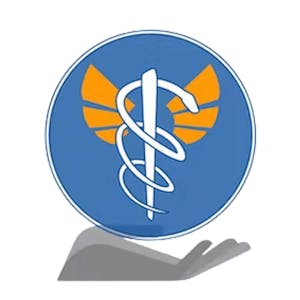Become an EMT
About this Specialization
Health care is an exciting and ever growing profession that can take you many different directions. You can apply the fundamentals you learn here about emergent patient care, stabilization, and disease processes toward becoming an EMT or further health care pursuits. In this specialization you will learn to care for stable and unstable patients before they get to a hospital, how to identify time sensitive diseases, and medical and traumatic conditions that affect both adults and pediatric patients.\\n\\nCourse 1 ensures you can assess a scene and prepare to provide care, understand the framework for patient assessment, history of emergency medical services, and the personal requirements to be an EMT. Course 2 addresses airway, breathing and circulation, medications and medication administration that EMTs are allowed to provide, and how to identify a patient having a stroke or diabetic emergency. Course 3 covers skills related to high performance CPR or cardiopulmonary resuscitation, toxicology, and wilderness emergency medicine. Course 4 offers skills for trauma emergencies and Course 5 focuses pregnancy, infants and pediatrics.\\n\\nEssential skills are demonstrated throughout the specialization. Finally, apply the course materials to real patient scenarios in the Capstone to help prepare you for national registry testing. For more information regarding educational requirements for licensure in U.S. states or U.S. territories see FAQ below.Created by: University of Colorado System

Related Online Courses
This course prepares you to recognize the complexities and nuances of different renewable energy solutions, as well as relevant career opportunities (both technical occupations and roles not... more
The French Revolution was one of the most important upheavals in world history. This course examines its origins, course and outcomes. This course is designed for you to work through successfully... more
This course for practicing and aspiring data scientists and statisticians. It is the fourth of a four-course sequence introducing the fundamentals of Bayesian statistics. It builds on the course... more
This course covers commonly used statistical inference methods for numerical and categorical data. You will learn how to set up and perform hypothesis tests, interpret p-values, and report the... more
Learn the skills to represent yourself with every message you send and receive by communicating your best self!Created by: Arizona State University more








